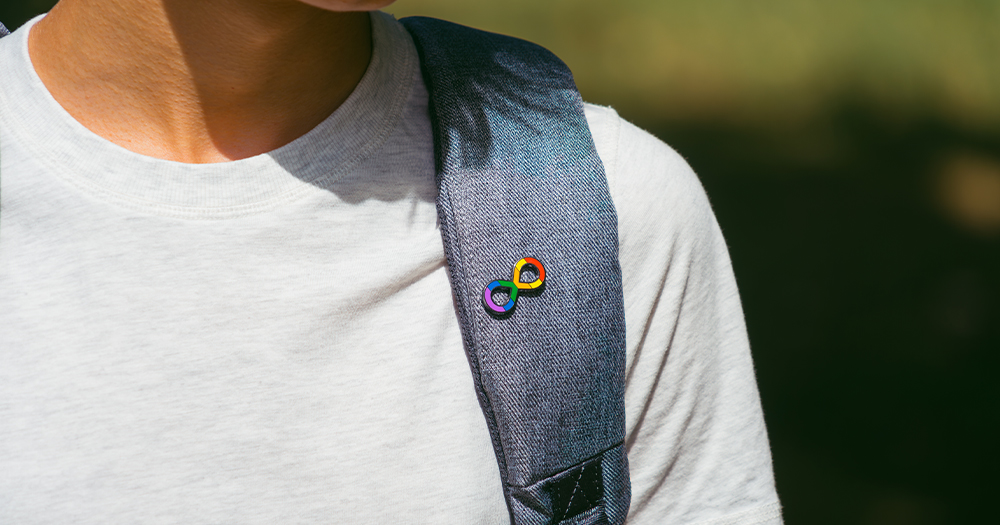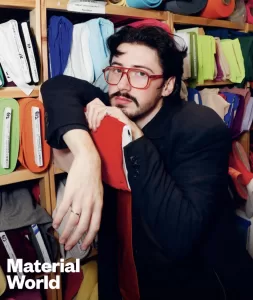When you don’t meet certain societal expectations, it can be difficult to accept and love your authentic self. Challenging the idea of what it means to be ‘normal’, Aarya Bhutani looks at how neurodivergent and queer people carve their own paths to discover their truth.
The term ‘neurodivergence’, coined in 1988 by Australian sociologist, Judy Singer, is used to describe people whose brains function differently than what society deems neurotypical. Neurodiversity encompasses a spectrum of cognitive and neurological variations, including autism, ADHD, dyslexia, and more. These variations impact individuals’ sensory perceptions, communication styles, and social interactions as well. On the other hand, the journey of self-discovery, identity, and acceptance within the LGBTQ+ community involves confronting and challenging stigma and discrimination, working through complex internalised psychological perceptions of oneself.
For certain areas of life, it is important to have a clear definition of what is ‘normal’. For example, healthcare providers need to be able to determine unusual responses and symptoms in order to provide the right treatment. But how does society’s constant need to have a normal and abnormal impact those who are queer or neurodivergent?
Before coming to Ireland, I worked closely with kids who had neurological deficits and they were quickly put into labels of having either disorder A or disorder B. Going from there, my job was to make sure that the child had all the resources they needed to thrive and overcome any challenges that surfaced in their day to day lives.
I always wondered if managing neurodivergent traits as a child was easier as they themselves have a limited purview of life and its complexities. The children I dealt with also had parents or guardians who were able to support them however they needed. Were adults with neurodivergence treated with the same humility?
As I dove further into trying to understand how it feels living as an adult with neurodivergent traits, I realised that society hasn’t been as kind and that no two people can have the same experiences, just like no two people can have the same brain. This led me to want to understand how being neurodivergent might intersect with queer identities.
I am grateful that I have made a home for myself in Dublin where the LGBTQ+ community is so vibrant and I had the pleasure of chatting with some wonderful human beings to hear more about their lives and their experiences. I found out that at the intersection of these queer identities lies a journey of self-discovery, navigating the landscape of self-expression, gender identity, sexuality, and neurodivergent traits.
As somebody with a functional knowledge of psychology and specialised experience in working with people who show neurodivergent traits, I understand that identity formation is a multifaceted process that is shaped by a plethora of factors, including cultural, social, and psychological influences. Especially looking at neurodivergence from a queer lens, the individuals may often feel that sense of otherness, navigating through a world that fails to understand or accommodate their unique perspectives and needs.
When neurodivergence and queer identities intersect, individuals with neurodivergent traits may face unique challenges in understanding and expressing themselves authentically. While chatting to R (not wanting to disclose their name), I asked them about how they initially got their diagnoses for neurodivergence. To my disbelief over the whole experience, they walked me through how, at first, they were diagnosed with Borderline Personality Disorder because they were born female and the professionals they went to diagnosed them based on traditional gender roles. They were never screened for neurodivergence.
After they got their initial diagnosis, they thought “Well, now that I know what’s up with me, it’s on me to fix it”. They took it upon themselves to ‘fix’ something innate when there wasn’t anything that needed to be fixed or could be fixed by their own sheer will. It was only through talking to other people around them that they realised their experiences felt different from what they had been told to believe, which led them to be diagnosed with autism.
While I was talking to them about how being autistic affected their interpersonal relations, they mentioned that their biggest challenge was making friends. They said they were putting themselves out there and doing everything they could to extend a friendly hand to other people.
However, because they had difficulties with social situations and communication, that was not always expressed to the other person as well as they would have hoped. They mentioned how learning about emotions through therapy helped them deal with their own better. While talking about emotional difficulties, they explained how it’s not just circumstances but also a sensory overload that would sometimes tip them over the edge, and they have to remind themselves that it’s not that they are a bad person and doing this purposely, but they have autism and things are genuinely difficult for them sometimes.
One very interesting thing I took away from that conversation is how well adults who’ve spent their whole lives with neurodivergent traits have learned to mask their symptoms. While we talked about masking, they brought up Dr Devon Price’s book called Unmasking Autism which details how people condition themselves into hiding their symptoms, largely to conform to societal expectations. For example, girls are told to not be loud or rowdy, so they do not have the space to show that they’re different from what the gender bias dictates. Similarly, people who come from underprivileged backgrounds may not be diagnosed properly because their symptoms might be dismissed as a result of their hard circumstances or they just don’t have the opportunity to let their true selves out.
With neurodivergence comes the weight of having our brains function slightly differently than others. Sadly, the rules that govern our workspaces are often made following neurotypical brains with only a little consideration kept for those who lie outside that norm. However, the world is changing. While talking to the wonderful people I did for this piece, they told me that there are employers who are mindful of neurodivergence and would be accommodating, but not all would be as considerate. Some would simply move on and choose somebody who could work better in accordance with the traditional expectations and rules that govern professional workspaces. This is why I believe it’s extremely important to have these conversations so we can instil a better workplace culture and offer neurodivergent employees the right resources they might need.
Sensory sensitivities also play a significant role in the lives of neurodivergent individuals. Sensory overload, hypersensitivity to certain stimuli, and difficulty in regulating sensory input can impact everything from physical intimacy to social interactions, which is why it’s important to create inclusive environments that respect and accommodate neurodivergent traits.
More than that, we need to learn how to be gentle with ourselves, as mentioned by Sarah, who was diagnosed with ADHD when she was nine years old. When I asked her what helped everything around her feel more manageable, she had a beautiful perspective on how acceptance and moving forward with life will only begin with being gentle with oneself. Sarah previously wrote about her experience of being diagnosed with ADHD early on and what that meant for her and her sense of self. I often heard from people who came to seek psychotherapy that they were afraid of using medications because of what it would mean for the identity that they’d cultivated over the years. Sarah put it beautifully, writing: “When I went off the medication after finishing school, I found myself questioning what my ‘potential’ really meant.”
While the world changes and people around us become more understanding instead of dismissive, the journey to lead a life that’s beneficial to you still begins with how you view yourself. Different things might work for different people but to go back to what Sarah said, “Be gentle with yourself, the world wasn’t made with the lens of neurodivergent and queer identities. You will get where you’re supposed to reach no matter how many lists you make or how many alarms you set. You will have to be gentle with yourself to find what works best for you and accept that you are bound to make mistakes because, at the end of the day, you’re only human.”
© 2025 GCN (Gay Community News). All rights reserved.
This article was published in the print edition Issue No. 387 (December 13, 2024). Click here to read it now.
Support GCN
GCN is a free, vital resource for Ireland’s LGBTQ+ community since 1988.
GCN is a trading name of National LGBT Federation CLG, a registered charity - Charity Number: 20034580.
GCN relies on the generous support of the community and allies to sustain the crucial work that we do. Producing GCN is costly, and, in an industry which has been hugely impacted by rising costs, we need your support to help sustain and grow this vital resource.
Supporting GCN for as little as €1.99 per month will help us continue our work as Ireland’s free, independent LGBTQ+ media.

